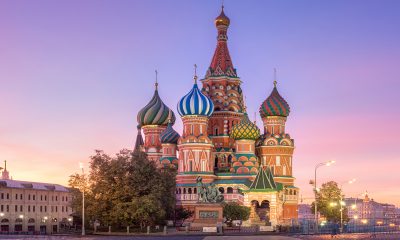European Union
Gay Lithuania filmmaker uses work to advance LGBTQ, intersex rights
Romas Zabarauskas came out in 2011 at Vilnius Film Festival

A gay filmmaker from Lithuania who describes himself as the “Baltic enfant terrible” uses his work to promote LGBTQ and intersex rights.
Romas Zabarauskas, 32, grew up in Vilnius, the Lithuanian capital.
He told the Washington Blade during an interview in D.C. in August that he initially wanted to be an actor, but soon realized he wanted to direct films.
Zabarauskas said the classic films — including John Waters’ “Pink Flamingos” and Douglas Sirk’s “All that Heaven Allows” —he watched in a local library exposed him to “the diversity of the world.” He also said Todd Haynes, Derek Jarman, Gregg Araki and other LGBTQ and intersex filmmakers “inspired” him.
“I enjoyed the diversity of the world,” he said. “It wasn’t just in terms of sexuality and gender identity, but also in terms of diversity of styles and ways of expression. It was amazing because it made me feel accepted.”
“It all sounds kind of trivial, but it’s true,” added Zabarauskas. “Cinema captures stories from all across the world in such different ways. That’s kind of amazing. I was definitely inspired by that.”
Zabarauskas studied at Paris 8 Vincennes Saint-Denis University from 2009-2011 and at City College of New York: Hunter College from 2011-2012.
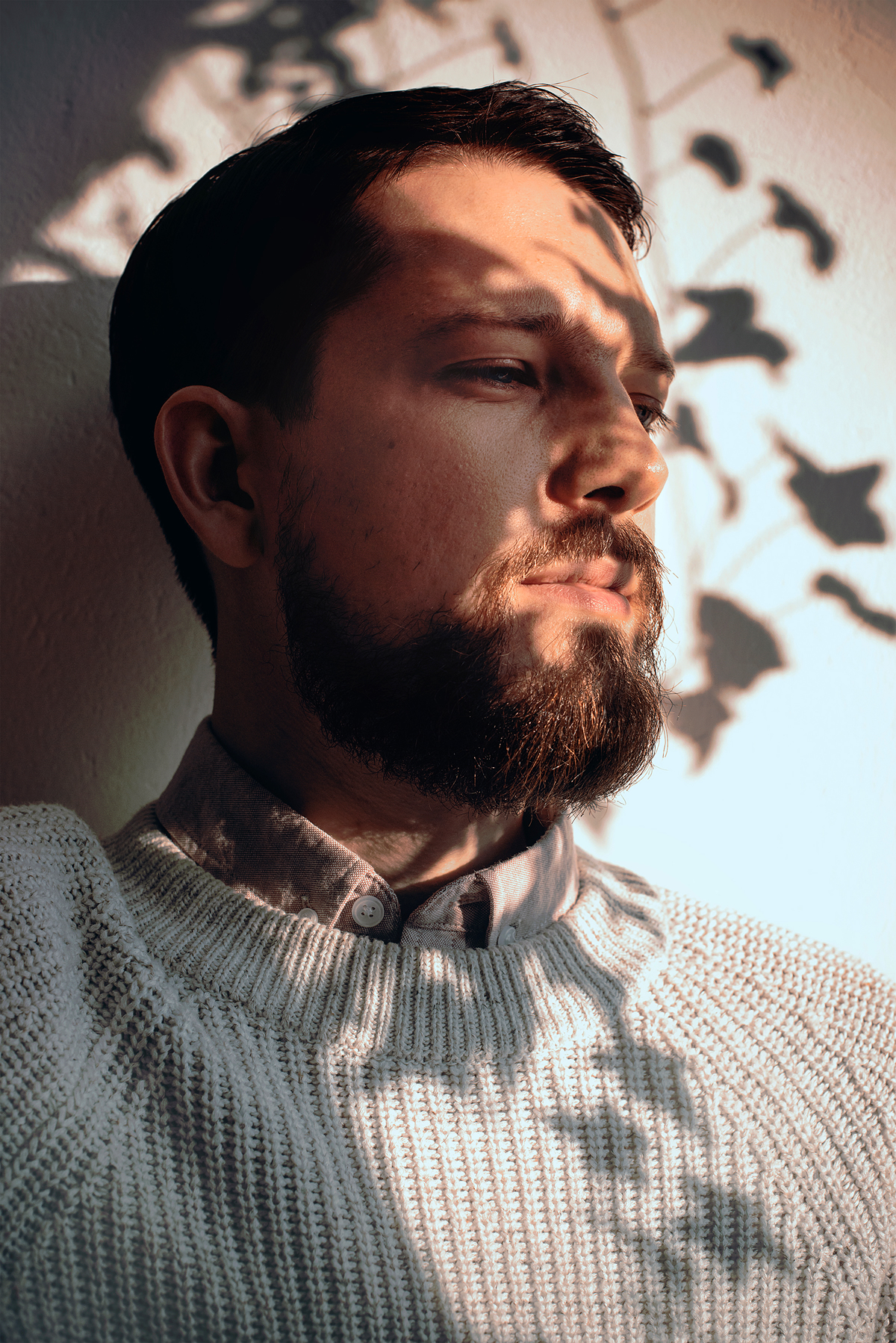
Zabarauskas’ first film, “Porno Melodrama,” which details a gay man’s decision to make a pornographic movie with his ex-girlfriend in order to make enough money for him and his boyfriend to leave Lithuania, premiered at Berlin Film Festival in 2011.
“There are many other films that have this kind of paranoia about gay villains, queer villains. I almost wanted to do something opposite,” Zabarauskas told the Blade while discussing the film. “It’s as though heterosexuality becomes this villain through the character of this villain, this ex-girlfriend. I wanted to play with that, allow myself that freedom to go very far. The title really hints more so, not to the erotic aspect of the film, because it’s not as explicit reality, but it’s more about the style of the film because it’s so out there.”
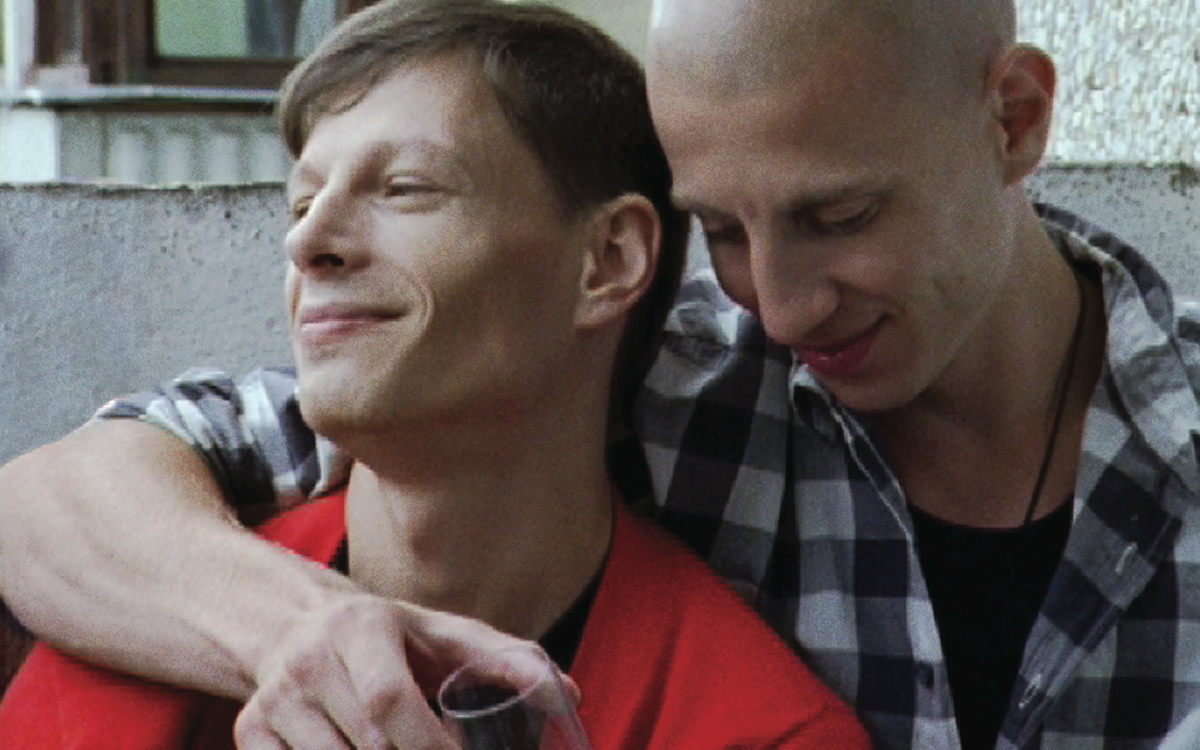
Zabarauskas came out as gay during “Porno Melodrama”‘s premiere at the Vilnius Film Festival.
“Very few people were out (in Lithuania) then in 2011,” he noted. “I got a lot of media attention … I talked about what it means to be gay on TV, print and all kinds of media.”
“It was a double-edged sword,” added Zabarauskas. “I was happy to contribute with my openness and I continue to do so today. On the other hand, I got so much pressure … the direct homophobia is understandable and easy to dissect. You know what it is, but then there was a lot of gray zone. I feel like I was trapped. I went under this huge scrutiny.”
The Berlin Film Festival then screened “Porno Melodrama.”
“I traveled the world, but then because I got so much media attention in Lithuania I was scrutinized by the critics and by film lovers and a lot of people (said) that I’m more of an activist,” said Zabarauskas. “I’m more of a public speaker than a filmmaker. The way I see it: Artists should be engaged or can be engaged, and it doesn’t contradict the art.”
The Lithuanian Film Center funded Zabarauskas’ third feature film, “The Lawyer,” which debuted in 2020.
“The Lawyer” highlights Marius, a gay corporate lawyer who forms what Zabarauskas describes as “an unexpected, human relationship” with Ali, Syrian refugee who is unable to leave Belgrade, Serbia, after his estranged father dies. Zabarauskas noted to the Blade that “The Lawyer” is the first Lithuanian film that portrays a male same-sex relationships and is one of the few made in Eastern Europe that shows LGBTQ and intersex refugees.
“I’m always interested in delving into very complicated political situations, but rather than to educate or send a direct message, I’m looking to find nuance and I’m looking to find interesting human drama,” he said. “I also don’t shy away from the kind of dialogue that they [Marius and Ali] have, in which they criticize [Syrian President Bashar] al-Assad. It’s so important not to forget that that was still ongoing and actually its fueled by Russia and by Putin.”
Lithuanian television showed “The Lawyer” for the first time on Nov. 11.
Lithuanian Shorts, in 2021 screened “Porno Melodrama,” which coincided with the film’s revival. Zabarauskas’ films have also been screened at the Tel Aviv International LGBT Film Festival and at New York City Pride’s human rights conference.
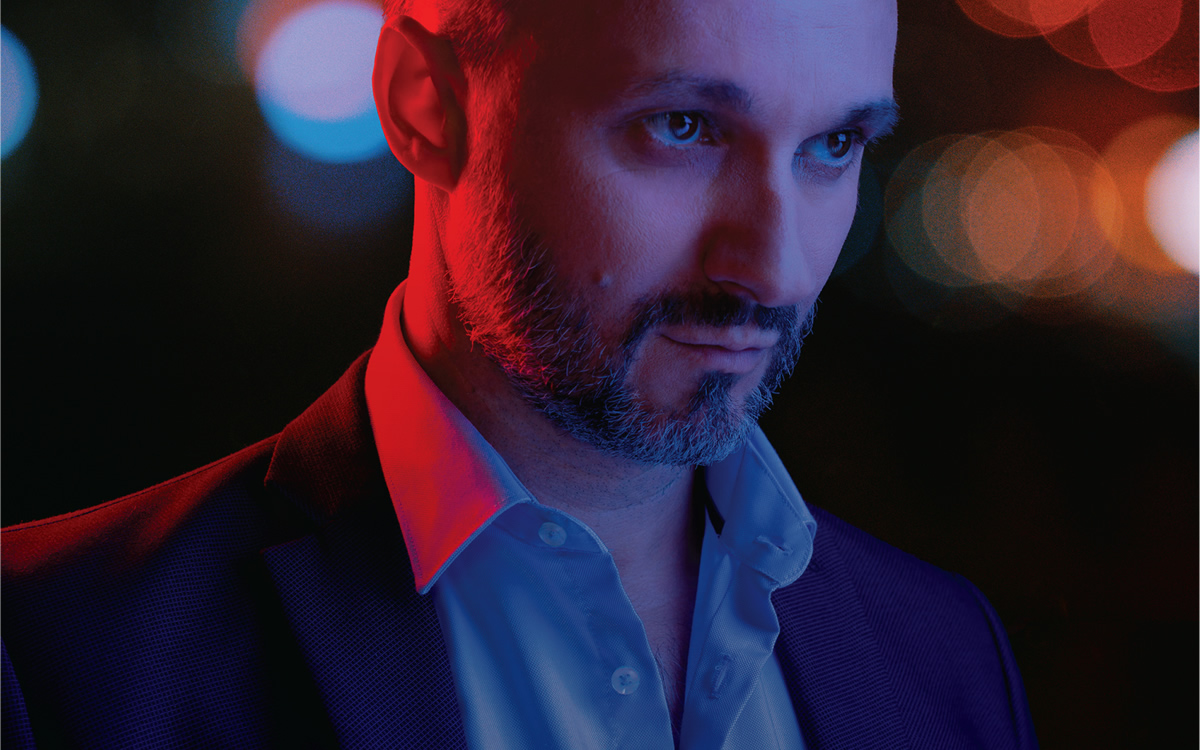
Zabarauskas spoke with the Blade nearly six months after Russia began its war against Ukraine.
Lithuania borders the Russian enclave of Kaliningrad and Belarus, whose president, Alexander Lukashenko, is a close ally of Russian President Vladimir Putin. Lithuania declared its independence from the Soviet Union in 1990, a year before it dissolved.
Zabarauskas noted then-Lithuanian President Dalia Grybauskaitė in 2014 labeled Russia a “terrorist state” after it annexed Crimea. Lithuanian MPs in May unanimously approved a resolution that described Russia’s war against Ukraine as an “act of genocide.”
“It’s the first time that I can be so proud of my country,” Zabarauskas told the Blade, referring to Lithuania’s posture towards Russia. “I’m actually very proud that Lithuania is right in terms of its foreign policy towards Russia and has been for a while.”
Zabarauskas acknowledged there is “fear” among Lithuanians about whether Russia will target their country, but he said, “that primal fear isn’t there anymore.” Zabarauskas also noted Lithuanians have welcomed Ukrainians into their homes.
“That’s been inspiring,” he said.
Gay U.S. ambassador ‘setting a personal example’
Lithuania bans discrimination based on sexual orientation and has lifted restrictions for male blood donors who have sex with men. Jessica Stern, the special U.S. envoy for LGBTQ and intersex rights, is among the more than 15,000 people who attended Baltic Pride 2022 in Vilnius in June.
Tomas Vytautas Raskevičius, the country’s second openly gay MP, is running to become Vilnius’ next mayor in 2023. Lithuanian Ambassador to the U.S. Audra Plepytė met with Zabarauskas when he was in D.C.
“Us artists, we have this opportunity to build bridges, to make pressure,” said Zabarauskas. “We sometimes have more freedom than politicians in what we can say and what we can do. I always try to use that in meeting diplomats and politicians and reminding them that the Lithuania LGBT+ is a part of Lithuanian society and we should celebrate our rights and our lives and that’s important.”
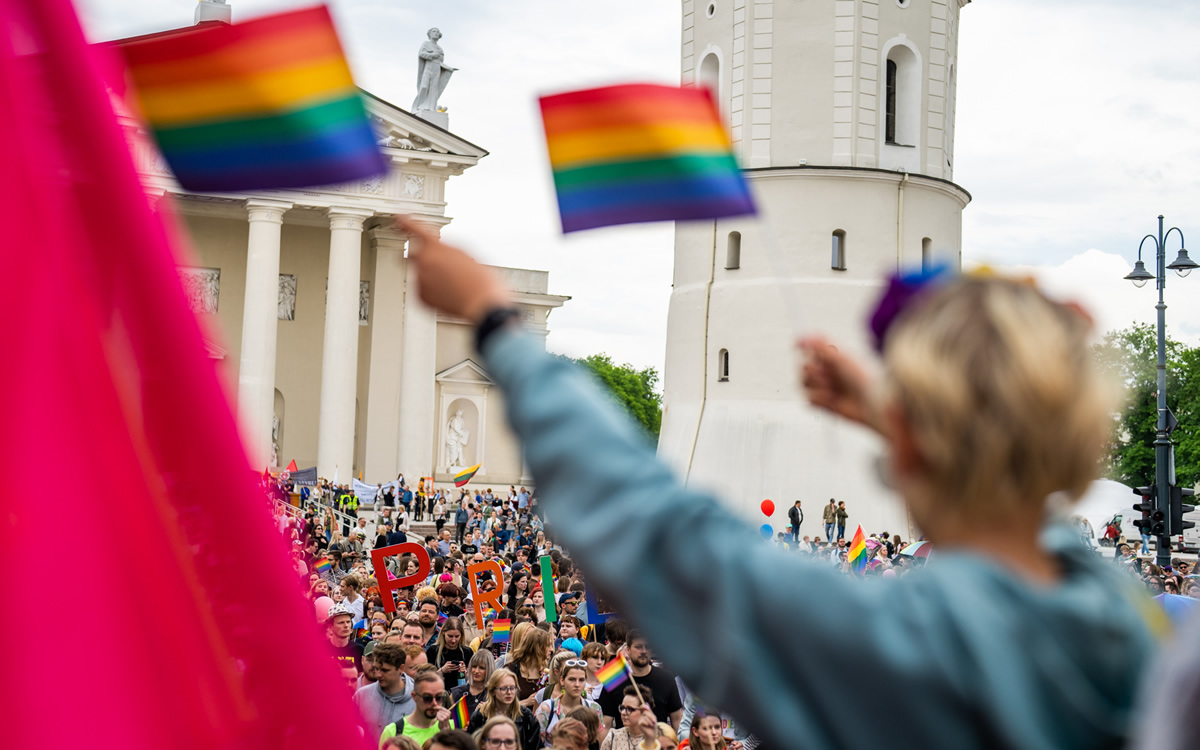
The Harvey Milk Foundation in 2021 honored Zabarauskas for his work. Zabarauskas noted this recognition to the Blade and applauded openly gay U.S. Ambassador to Lithuania Bob Gilchrist’s “personal leadership” on LGBTQ and intersex rights.
“I appreciate his leadership and I appreciate that he’s setting a personal example,” said Zabarauskas. “He’s making some impactful speeches at different events.”
Lithuania is one of only six European Union member states that do not legally recognize same-sex couples.
Ukrainian President Volodymyr Zelenskky in August announced his support for a civil partnership law for same-sex couples. Zabarauskas told the Blade he hopes Lithuanian lawmakers will follow the Ukrainian president’s lead and back an identical measure that has been introduced in Parliament.
“It’s so huge and a lot of people are inspired by those words, including in Lithuania,” said Zabarauskas. “I think it will be impactful in terms of our chances to get the civil unions law passed because it’s going to be very difficult to twist those words.”
Zabarauskas also said he and his fiancé want to get married in Lithuania.
“We got engaged earlier this year and we don’t want to get married abroad because it wouldn’t change anything in Lithuania,” he said.
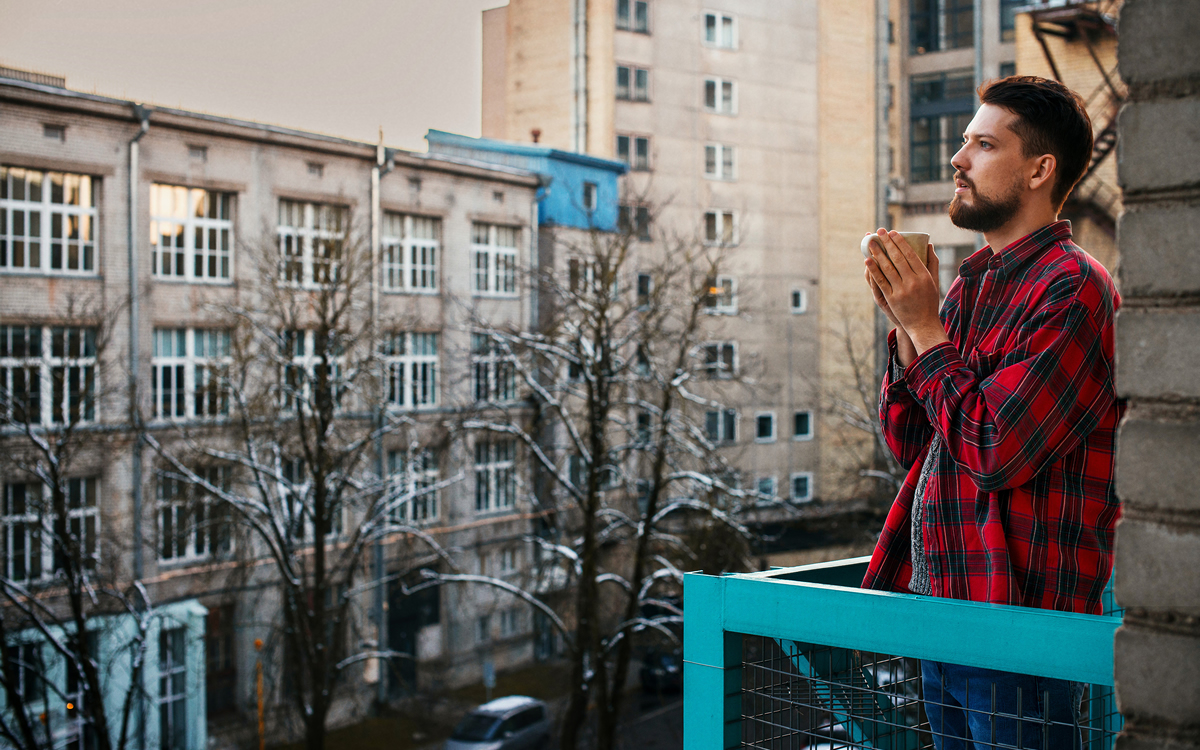
European Union
European Parliament resolution backs ‘full recognition of trans women as women’
Non-binding document outlines UN Commission on the Status of Women priorities

The European Parliament on Feb. 11 adopted a transgender-inclusive resolution ahead of next month’s U.N. Commission on the Status of Women meeting.
The resolution, which details the European Union’s priorities ahead of the meeting, specifically calls for “the full recognition of trans women as women.”
“Their inclusion is essential for the effectiveness of any gender-equality and anti-violence policies; call for recognition of and equal access for trans women to protection and support services,” reads the resolution that Erin in the Morning details.
The resolution, which is non-binding, passed by a 340-141 vote margin. Sixty-eight MPs abstained.
The commission will meet in New York from March 10-21.
A sweeping executive order that President Donald Trump signed shortly after he took office for a second time on Jan. 20, 2025, said the federal government’s “official policy” is “there are only two genders, male and female.” The Trump-Vance administration has withdrawn the U.S. from the U.N. LGBTI Core Group, a group of U.N. member states that have pledged to support LGBTQ and intersex rights, and dozens of other U.N. entities.
European Union
Top EU court: Poland must recognize same-sex marriage from other European countries
Activists celebrate landmark decision
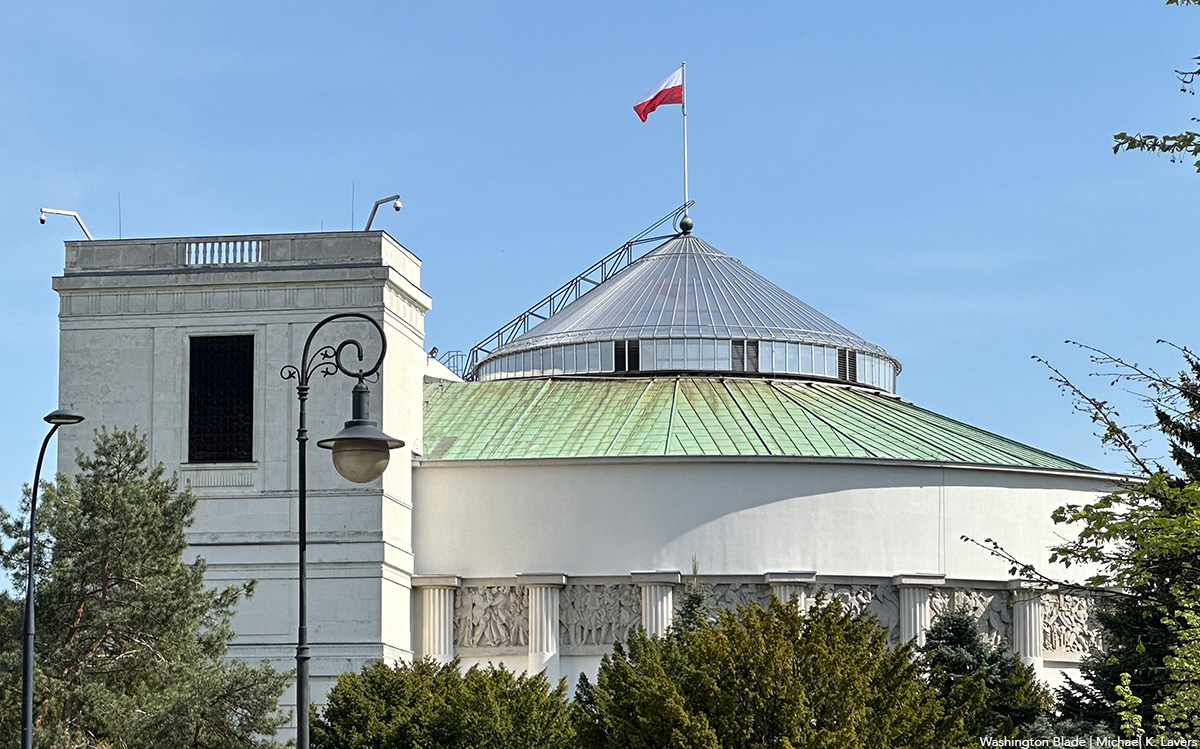
The European Union’s top court on Tuesday ruled member states must recognize same-sex marriages legally performed in other member states.
The EU Court of Justice in Luxembourg ruled in favor of a couple who challenged Poland’s refusal to recognize their German marriage.
ILGA-Europe notes Polish authorities refused “to transcribe into the civil register a certificate of same-sex marriage concluded” in Germany “between a Polish citizen and a Polish-German citizen … on the grounds that Polish law does not allow same-sex marriage.”
The couple who lives in Poland brought their case to Polish courts. The Polish Supreme Administrative Court referred it to the EU Court of Justice.
“Today’s ruling of the Court of Justice of the EU is of key importance not only for the couple involved in the case, but also for the entire LGBT+ community in Poland,” said the Campaign Against Homophobia, a Polish LGBTQ and intersex rights group, in response to the decision. “It clearly states that refusing to transcribe a marriage concluded abroad is incompatible with EU law. Therefore, regardless of the absence of registered partnerships and marriage equality, Poland must ensure the possibility of effective transcription.”
“With this judgment, the CJEU clearly states that the recognition of marriage status is key to enjoying EU citizens’ fundamental right to freedom of movement across the EU,” added ILGA-Europe Advocacy Director Katrin Hugendubel. “The EC now needs to ensure that this judgment is implemented quickly by the Polish state and across the EU.”
Sixteen EU countries — Ireland, Portugal, Spain, France, Luxembourg, Belgium, the Netherlands, Germany, Denmark, Austria, Slovenia, Malta, Greece, Sweden, Finland, and Estonia — have extended full marriage rights to same-sex couples. Poland, Romania, Bulgaria, and Slovakia are the EU countries with no legal recognition of same-sex couples.
European Union
Former Irish prime minister: Europe is leader in global LGBTQ rights movement
Leo Varadkar in 2017 became Ireland’s first gay head of government.
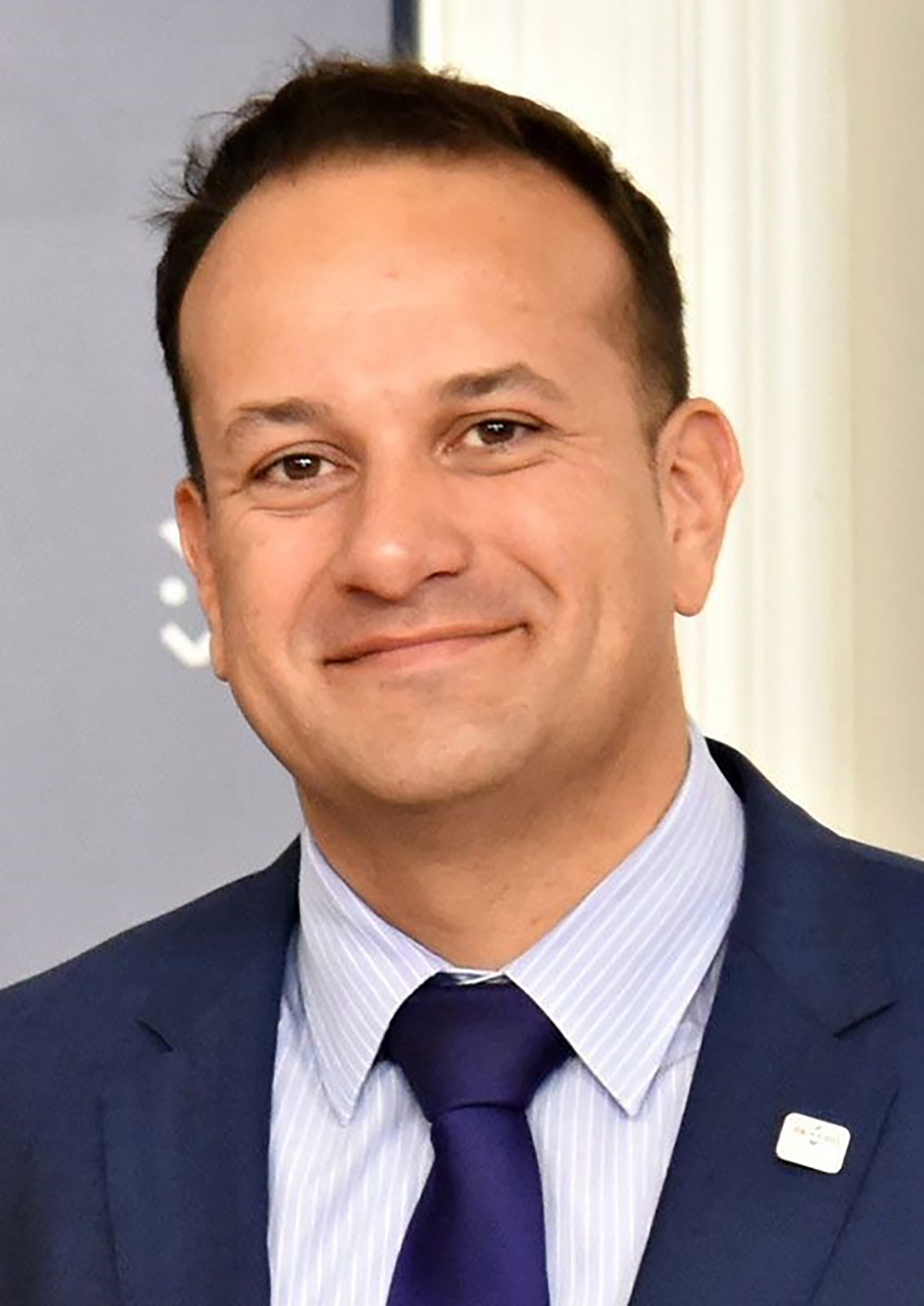
CAMBRIDGE, Mass. — Former Irish Prime Minister Leo Varadkar earlier this month said Europe is now at the forefront of the global LGBTQ and intersex rights movement.
“In many ways, Europe is the light,” he told the Washington Blade on Oct. 20 during an interview that took place near Harvard University. “It’s holding up against anti-LGBTQ policies.”
Varadkar, 46, in 2017 became Ireland’s first gay prime minister.
He stepped down in 2020 after his center-right party, Fine Gael, lost 15 parliament seats in the general election, but he remained in the government. Varadkar, whose father was born in Mumbai, in 2022 once again became prime minister.
Varadkar in 2024 resigned and stepped down as Fine Gael’s leader.
The Harvard Kennedy School’s Carr-Ryan Center for Human Rights on Oct. 16 announced Varadkar’s appointment as a senior fellow for its Global LGBTQI+ Human Rights Program for the 2025-2026 academic year. He — along with former Massachusetts Gov. Deval Patrick and former acting Treasury Secretary David Lebryk — are also Hauser Leaders at the Harvard Kennedy School’s Center for Public Leadership for this year’s fall semester.
Varadkar during his fellowship will focus on LGBTQ and intersex rights within the EU.
He sat down with the Blade on the same day he spoke at Harvard’s Weatherhead Center for International Affairs. Varadkar on Tuesday participated in an event in Brussels that focused on LGBTQ and intersex rights in the EU.
New EU LGBTQ strategy ‘not wonderful, but at least it was done’
The European Commission on Oct. 8 released an LGBTQ and intersex rights strategy that focuses on three specific areas:
- Protecting LGBTIQ+ people (from hate-motivated harassment and violence, from discrimination, from conversion practices)
- Empowering LGBTIQ+ people through (equality bodies, rainbow families, promoting inclusion at workplace)
- Engaging society to advance LGBTIQ+ equality by (calling on all EU countries to adopt national strategies, improving the data collection and analysis, launching an ‘LGBTIQ+ Policy Forum’)
“It’s not wonderful, but at least it was done,” said Varadkar. “You won’t see that done in China, Russia, or even the United States, unfortunately.”
“Europe needs to hold the line, but also we want to focus on places where there is backsliding, like Bulgaria, like Slovakia,” he added, while also referring to the Czech Republic and Hungary.
Varadkar is among those who participated in this year’s Budapest Pride, even though Hungarian Prime Minister Viktor Orbán’s government banned public LGBTQ events.
“It wasn’t just a regular Pride protest, and in Eastern Europe Pride is still a protest, very much so … they’re met by football hooligans, and police who aren’t necessarily there to support there to protect them,” Varadkar told the Blade. “This time, everyone joined in: students, unions, families, even more moderate political forces that might not always want to be associated with the LGBT cause, but it became about freedom of expression and became about free speech, and that’s why there was such a big turnout.”
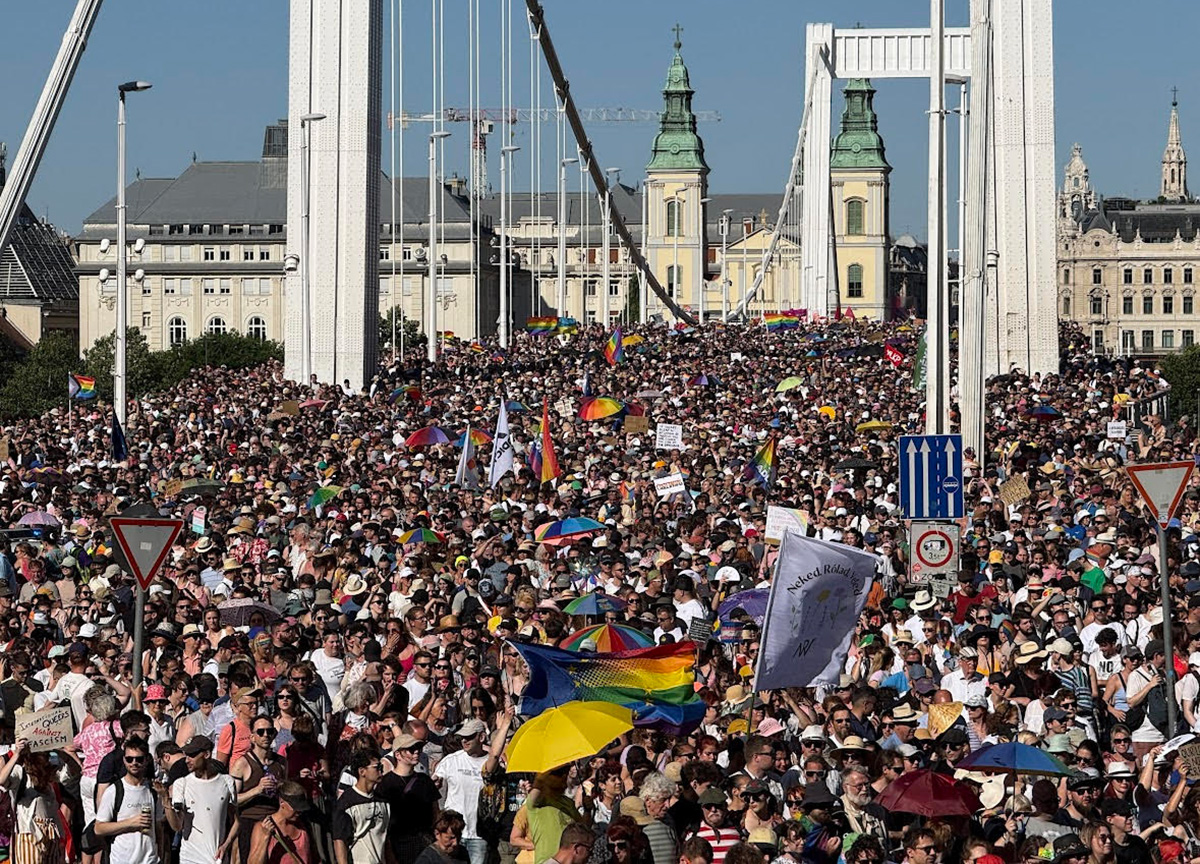
Varadkar since he left office has also traveled to Bulgaria to support the country’s LGBTQ activists. Varadkar also spoke to the Blade about Russia and the Kremlin’s efforts to “influence and destabilize European societies.”
Russia in 2022 launched its war against Ukraine.
“One of the ways they do that is through election interference and misinformation online, and they’ve identified this as an issue that can divide European societies,” said Varadkar, specifically referring to the Russian government’s opposition to LGBTQ rights and its overall human rights record. “[Russian President Vladimir] Putin has very much embraced the idea of traditional values and Russian Orthodox Christianity, and he’s using that as a wedge issue in Central and Eastern Europe.”
“So as ever our fight is part of a bigger fight that’s linked to things like democracy, human rights, academic freedom, press freedom,” added Varadkar. “We’re on the front line in the same battle, in my view.”
He also said the EU needs to be pragmatic in how it responds to Orbán and other anti-LGBTQ leaders.
“[The EU] is in a bit of a dilemma as to how it acts, how it does withdraw funding sometimes from countries if they’re in breach of the standards around the rule of law,” said Varadkar.
The European Commission in 2021 threatened to withhold funding to local and regional governments in Poland that declared themselves “LGBT-free zones.” The European Commission in 2022 sued Hungary over a law that a press release notes “singles out and targets content that ‘promotes or portrays’ what it refers to as ‘divergence from self-identity corresponding to sex at birth, sex change or homosexuality’ for individuals under 18.”
“Some of the more nationalist and populist leaders in Central and Eastern Europe; there’s nothing they want more than a fight with Brussels, these Western European elites … trying to impose their ideology on our country,” Varadkar told the Blade. “So that’s why I think the European Union has to be smart as to how it acts.”
European Commission President Ursula von der Leyen is among those who condemned the Budapest Pride ban. Varadkar told the Blade he “was disappointed there wasn’t more action” from Brussels “in relation to why Budapest Pride was being banned.”
Varadkar praises Sarah McBride
Ireland is among the countries that have issued travel advisories for transgender and nonbinary people who are planning to visit the U.S. since the Trump-Vance administration took office.
President Donald Trump shortly after his inauguration issued a sweeping executive order — Defending Women from Gender Ideology Extremism and Restoring Biological Truth to the Federal Government — that, among other things, bans the State Department from issuing passports with “X” gender markers. Trump in his inaugural speech also said the federal government will only recognize two genders: male and female.
Trump in February issued another executive order that bans trans women and girls from female sports teams. U.S. Citizenship and Immigration Services in August announced it will ensure “male aliens seeking immigration benefits aren’t coming to the U.S. to participate in women’s sports.”
The promotion of LGBTQ and intersex rights abroad was a cornerstone of the Biden-Harris administration’s overall foreign policy.
Secretary of State Marco Rubio on Jan. 24 directed State Department personnel to stop nearly all U.S. foreign aid spending for 90 days in response to an executive order that Trump signed after his inauguration. Rubio later issued a waiver that allowed PEPFAR and other “life-saving humanitarian assistance” programs to continue operating after bowing to pressure, but the Blade has reported PEPFAR-funded programs in Kenya and other African countries have been forced to suspend services and even shut down because of gaps in U.S. funding.
Rubio in March announced 83 percent of U.S. Agency for International Development contacts had been cancelled, and the State Department would administer the remaining programs. USAID officially shut down on July 1.
The global LGBTQ and intersex rights movement has lost more than an estimated $50 million in funding since the Trump-Vance administration took office.
“It has an impact, particularly on organizations in the Global South and in Central and Eastern Europe,” said Varadkar.

Varadkar told the Blade he is working with the Global Development Project and other philanthropic organizations to “fill some of the gap” in funding.
He said the current situation “demonstrates why we should never be too dependent on any government or corporations.” Varadkar also spoke more broadly about the Trump-Vance administration and its policies.
“I’m a guest in this country. I’m not here to tell you what to do. The American people decide who the president is. I don’t, but I am genuinely disappointed to see the backsliding on human rights and academic freedom and free speech here in America,” said Varadkar.
“What do I associate America with? I associate it with being one of the homes of democracy and helping to spread it around the world. I associate it with free speech, sometimes even saying any crazy thing you want. And I associate it with as being the birthplace of the LGBT liberation movement. I think of Stonewall. I think of the Castro,” he added. “It all started here, long before anyone in Ireland could ever imagine homosexual acts being decriminalized, let alone a gay person being the head of government.”
“To me this is where it all started,” said Varadkar. “It’s particularly worrying that things appear to be going in the wrong direction here, and that has impacts in the rest of the world too, that Americans might be very aware of.”
Varadkar also said he admires U.S. Rep. Sarah McBride (D-Del.), who in 2024 became the first openly trans person elected to Congress.
“She’s there for everyone in Delaware, and yes, she is trans too,” Varadkar told the Blade. “She’s willing to be a leader, but I think as LGBT leaders, we should make sure that our causes are part of the wider welfare and society and not separate.”
-

 Theater5 days ago
Theater5 days agoMagic is happening for Round House’s out stage manager
-

 Baltimore3 days ago
Baltimore3 days ago‘Heated Rivalry’ fandom exposes LGBTQ divide in Baltimore
-

 Real Estate3 days ago
Real Estate3 days agoHome is where the heart is
-

 District of Columbia3 days ago
District of Columbia3 days agoDeon Jones speaks about D.C. Department of Corrections bias lawsuit settlement





